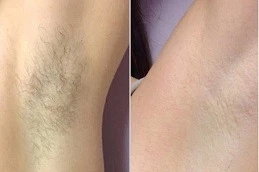Hyperhidrosis is a medical condition characterized by excessive sweating beyond what's necessary to regulate body temperature. While sweating is a normal bodily function, individuals with hyperhidrosis experience sweating that can significantly impact their daily lives. This article delves into the various facets of hyperhidrosis, its causes, impacts, and most importantly, treatment solutions for long-term relief.
Introduction:
Understanding Hyperhidrosis:
Hyperhidrosis, often referred to as excessive sweating, affects millions of people worldwide. It goes beyond the occasional sweat caused by physical activity or warm weather, causing individuals to sweat profusely even when the circumstances don't warrant it.
Importance of Seeking Treatment:
Although Hyperhidrosis Treatment in Abu Dhabi is not life-threatening, it can greatly affect one's quality of life. Seeking treatment is crucial not only for physical comfort but also for mental well-being and social confidence.
Types of Hyperhidrosis:
Primary Hyperhidrosis:
Primary hyperhidrosis typically begins during adolescence and primarily affects the palms, soles, underarms, and face. It's often localized and not caused by an underlying medical condition.
Secondary Hyperhidrosis:
Secondary hyperhidrosis is less common and usually occurs as a result of an underlying medical condition or medication. It can affect the entire body and may develop later in life.
Causes of Hyperhidrosis:
Genetic Factors:
Research suggests that genetics play a significant role in primary hyperhidrosis.
Medical Conditions:
Certain medical conditions such as hyperthyroidism, diabetes, and menopause can trigger secondary hyperhidrosis by affecting the body's sweat glands.
Medications:
Some medications, including antidepressants, antipsychotics, and beta-blockers, list excessive sweating as a side effect.
Lifestyle Factors:
Lifestyle choices such as consuming spicy foods, consuming caffeine, smoking, and wearing tight clothing can exacerbate hyperhidrosis symptoms.
Impact of Hyperhidrosis:
Physical Discomfort:
Constant sweating can lead to skin irritation, fungal infections, and unpleasant body odor, causing physical discomfort and embarrassment.
Emotional and Social Impacts:
Hyperhidrosis can significantly impact an individual's self-esteem, leading to social withdrawal, anxiety, and depression.
Treatment Options:
Topical Treatments:
They work by blocking sweat ducts, reducing sweating in the affected areas.
Oral Medications:
In some cases, oral medications such as anticholinergics may be prescribed to reduce sweating by blocking the chemical signals that stimulate sweat glands.
Botulinum Toxin Injections:
Botulinum toxin injections, commonly known as Botox injections, can effectively reduce sweating by blocking the release of the chemical that triggers sweat production.
Iontophoresis:
Iontophoresis involves passing a mild electrical current through water to the skin, effectively blocking sweat glands' activity.
Surgery:
For severe cases of hyperhidrosis that do not respond to other treatments, surgical options such as sympathectomy may be considered to permanently disrupt the nerves that stimulate sweat production.
Lifestyle Changes and Home Remedies:
Clothing Choices:
Opting for breathable fabrics such as cotton and avoiding tight-fitting clothing can help minimize sweating.
Stress Management:
Practicing stress-reduction techniques such as yoga, meditation, and deep breathing exercises can help control excessive sweating triggered by emotional stress.
Dietary Adjustments:
Avoiding spicy foods, caffeine, and alcohol can help reduce sweating triggered by dietary factors.
Proper Hygiene Practices:
Maintaining good personal hygiene, including regular showering and using antibacterial soap, can help minimize body odor associated with excessive sweating.
Seeking Professional Help:
Consultation with a Dermatologist:
Consulting with a dermatologist specializing in hyperhidrosis is essential for accurate diagnosis and personalized treatment plans.
Importance of Personalized Treatment Plans:
Every individual's experience with hyperhidrosis is unique, requiring tailored treatment approaches to address their specific symptoms and triggers.
Conclusion:
Hyperhidrosis is more than just sweating—it's a medical condition that can significantly impact an individual's physical and emotional well-being. However, with the right treatment approach, long-term relief is possible. By understanding the causes and treatment options available, individuals can take proactive steps toward managing their hyperhidrosis and improving their quality of life.


